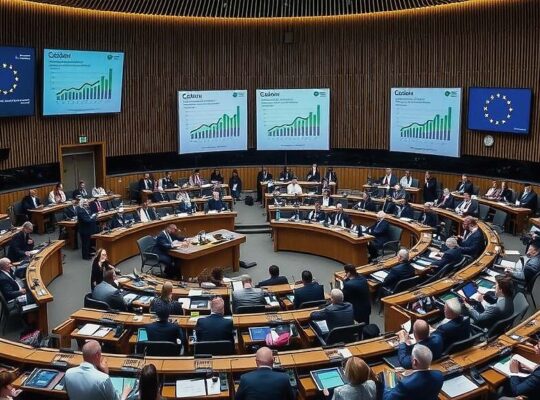The Green Party is issuing a stark warning to Germany’s governing coalition of CDU and SPD, accusing them of undermining crucial climate policy commitments amidst growing pressure from within the conservative wing. The core of the dispute centers on the controversial heating law, designed to accelerate the transition to heat pumps, which faces potential dismantling due to conservative demands.
Britta Haßelmann, parliamentary group leader of the Green Party, cautioned against repealing the heating law, emphasizing that citizens, industry and tradespeople are now increasingly investing in heat pump technology. She condemned the coalition’s apparent move to abandon the initially proclaimed heating law, characterizing it as “a completely wrong signal” that jeopardizes established market shifts and investor confidence.
The concerns extend beyond heating. Green Party officials are also resisting proposed delays to the EU’s combustion engine ban, currently slated for 2035. Sven Giegold, deputy leader of the Greens, argues that the automotive industry requires reliable regulatory frameworks and a delayed ban introduces crippling uncertainty. This policy, he insists, is vital not only for climate protection but also for the future viability of Germany’s auto sector.
Furthermore, the Green Party vehemently opposes the planned reduction of aviation tax, dismissing it as both economically unsound and detrimental to climate goals. Giegold specifically targeted the SPD, urging them to avoid “populism” regarding the heating law and warning against fostering renewed insecurity within the heat pump market, which is only now recovering from earlier anxieties. He argued that any legislative changes at this juncture would damage the interests of skilled trades, climate protection efforts and ultimately, household budgets.
Giegold directly challenged CDU leader Friedrich Merz and Minister for Economic Affairs Katherina Reiche, accusing them of deliberately sowing doubt and hindering the progress of initiatives that are demonstrably gaining traction. He underscored that each new gas heating system represents a costly misstep and stressed the importance of swift modernization for energy independence, particularly in the context of diminishing reliance on autocratic and fracked gas sources. The Greens are clearly positioning the debate as a test of the coalition’s commitment to environmental goals and warning of the potentially devastating consequences of succumbing to short-term political pressures.












